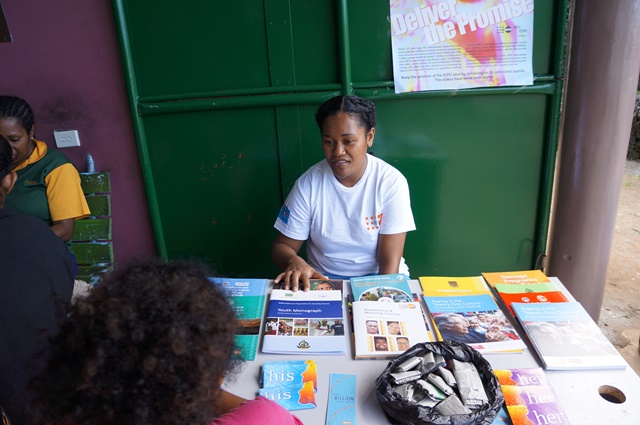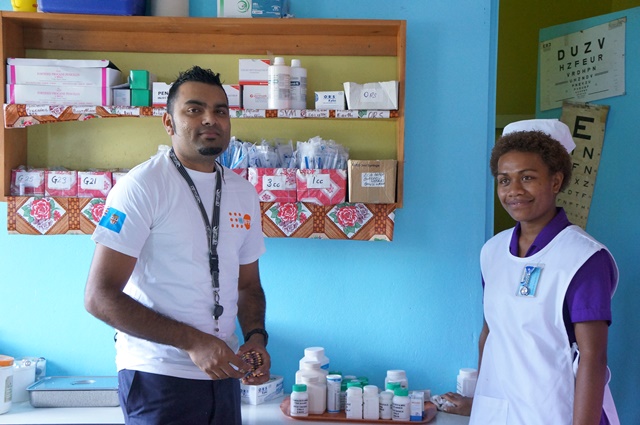FAMILY planning saves lives - a phrase the United Nations Population Fund (UNFPA) is all but too familiar with being one of the core messages in the organisation's advocacy for good sexual and reproductive health and rights.
This week, in the context of family planning globally-speaking, a milestone is being celebrated as UNFPA with its partners - governments, civil society players and the private sector - welcome a report that has reaffirmed with more evidence the benefits of planning one's family unit.

The FP2020 Partnership in Progress 2013-2014 underlines how voluntary family planning is one of the smartest investments a country can make, that it leads to transformational benefits that can be felt from an individual to national level.
The FP2020 (Family Planning 2020), a global platform if you will, was borne out of the 2012 London Summit on Family Planning, during which global leaders committed to expanding contraceptive access to an additional 120 million women and girls in the world's 69 poorest countries by 2020.
For FP2020, 2012 was the formative year and 2013 has already been a phase of measurable progress. For example the increased number of countries which formalised their FP2020 commitment to 29, out of the 69 FP2020 focus countries. Each country commits to specific financial, policy and programmatic pledges towards expanding access to contraceptives.
In 2013, donors disbursed $US1.3 billion ($F2.53b) in bilateral funding for family planning programs, a 20 per cent increase from 2012. Philanthropic foundations and the private sector pitched in with their allocations which supported increased service delivery programs, commodity security, product innovation and access, advocacy and awareness programs and other activities.
"In a time when resources are scarce, the increase of core contribution of $US 460m ($F897m) to the UNFPA reflects the acknowledgement of the benefits of family planning to everyone. The positive impact it has on us as a whole are multiple and cuts across sectors," UNFPA Pacific director and representative Dr Laurent Zessler said.
In 2013, 8.4 million more women and girls used modern contraception compared to 2012, this was below what the FP2020 project was hoping to achieve, 9.4 million additional users in the first year. The report speaks of girls because of realities that connive to ensure practices like child marriages continue to force girls to become mothers.
In 2013, the report estimates that across the 69 FP2020 focus countries, the use of modern contraception increased by a total of 274 million women and girls averted 77 million unwanted pregnancies, two million more averted unwanted pregnancies than 2012.
One of the main health benefits of preventing unwanted pregnancies is the reduction of exposure to unsafe abortions and maternal deaths. In 2013, 24 million unsafe abortions were averted (compared to 23 million in 2012) and 125,000 women and girls were saved from becoming maternal death statistics (compared to 120,000 in 2013).
The remarkable achievement of the FP2020 affirmed once and for all the power we have as humanity, with political will and an enabling (socioeconomic) environment, to influence, challenge and change conditions that appear to be inevitable.
In the past year, a dozen FP2020 commitment countries have hosted national or regional conferences on family planning. Two countries that have never before committed to family planning, Myanmar and Uganda, hosted their first national conferences.
Since November 2013, eight more countries have launched national implementation plans for family planning and half of all FP2020 commitment countries have formal, detailed plans in place to guide their family planning strategies.
The 2012 London Summit on Family Planning reminded global leaders, civil society and the private sector that family planning is about health of oneself and one's children and fundamental to the full realisation of one's reproductive rights.
The summit underlined more than anything that we would be doing ourselves a favour as humanity to place girls and women's reproductive health in the front and centre of any global (development) agenda.
With contraception to assist individuals or couples with family planning, women are able to decide for themselves whether and when to have children which ensures a populace of women who are healthier, more prosperous and have greater opportunities to pursue education and careers. Their children are in turn stronger, better nourished and more successful in schools.
When this basic unit of society, the family, is planned according to resources (financial or otherwise) at one's disposal, families and communities can invest more in education and health care, poverty is reduced and essentially, lives are saved.
"Family planning is also very much about being visionary and so it is critical that adolescents or youth (persons between 15 to 24 years) keep themselves informed of this issue; it would be prudent to begin thinking about this aspect of your lives from now," Dr Zessler said.
Family planning is about hope and the realisation of one's fundamental right to good reproductive health. Family planning is about women and girls being empowered with health, choice and opportunity. This report has been a timely reminder of just how fundamental to progress reproductive health is.
Our collective responsibility was aptly put by FP2020 executive director Valerie Defillipo: "FP2020 is more than a goal, it is a promise. A promise to the least fortunate women and girls that we will not forget their rights and agency, that we won't let contraception get pushed aside because it makes some people uncomfortable."


